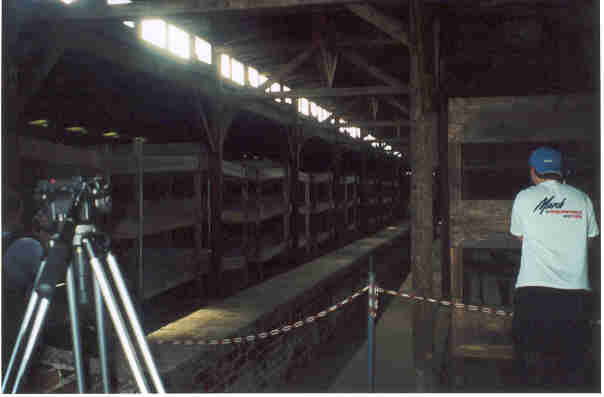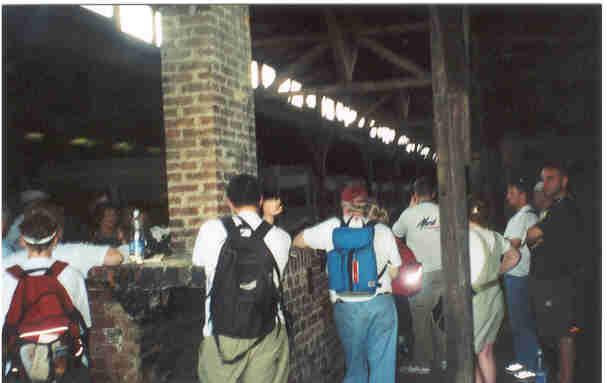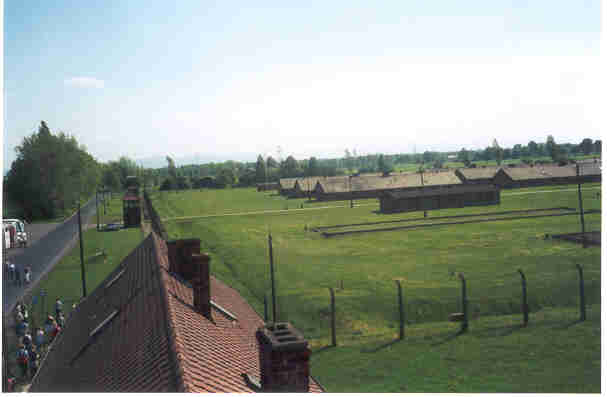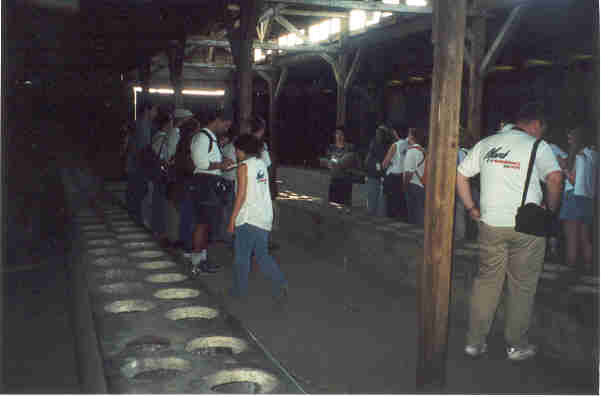|
|
|
 |
Auschwitz-Birkenau Barracks |  |
|
Inside the Buildings After touring the grounds at Auschwtiz-Birkenau, we were taken through some of the buildings as a group and then allowed to travel freely throughout the camp. The enormous size of this place became apparent when we noticed we could not see everything there. Admittance to buildings were limited to the ones in the pictures below. Being inside these buildings was the first real shock for me. I did not expect to see anything that seemed so well preserved. I had seen the interior of buildings in movies and knew what they looked like THEN, but I did not expect to see the actual places as they were. Personally, I think the film Life is Beautiful does a good job showing the interior of these buildings. Although the scenes were filmed in smaller buildings, the beds and cramped quarters seem very authentic. |
|
|
Men's Barrack Up to 1000 men would live in these barn-like buildings. During our visit, the temperature was in the mid-70s, but the heat inside was unbearable and would have only gotten worse when full of people.Enlarge Picture |
 |
| Winter Heat Polish winters are bitterly cold, and the only source of heat for the prisoners of these camps was one small stove per building.Enlarge Picture |
 |
|
Women's Housing The view of the female side of the camp. This picture shows about one-third of the buildings on this side. The reason the women had fewer buildings was because they were less likely to make it past the initial selection. The only people who lived past the first day at Auschwitz-Birkenau were those who were physically capable of hard labor. Therefore, women were killed at a higher rate on the first day and needed fewer buildings. Enlarge Picture |
 |
|
Inside a Building for Females This is the inside of a building used for housing females. If you look closely, you can see small squares missing in the brick walls. Those empty spaces were used for slats to make beds.Enlarge Picture |
 |
|
Current Grounds When we were there, the grounds at Auschwitz-Birkenau were really pretty, primarily because everything was so clean and the spring grass was full. We were told that we had a very different view than those who saw the camp during WWII. One reason is because no grass could grow when the prisoners were there. When thousands of people are starving to death in a small area, everything that CAN be eaten will be consumed, including grass.Enlarge Picture |
 |
|
Men's Latrine One building on the male side of the camp was the latrine, to be shared by everyone. As seen in Schindler's List , these structures were also used as hiding places for the desperate.Enlarge Picture |
 |
|
Latrine Cleaning out these toilets was considered the best job for a prisoner to have for two reasons. First, the latrine was the center of all underground activity for the prisoners (because the guards would not enter the building). This is where news was exchanged, trades were made and guerrilla activity was planned. The second reason this job was to be coveted was because the latrine-worker constantly reeked in such a way that the guards would not come near them, preventing beatings and floggings. Sometimes survival in a place like this requires a person to give up pride and vanity in exchange for the promise of living another day.Enlarge Picture |
 |